Saving the planet one device at a time: How S’pore startup myhalo fights the e-waste crisis
The thrill of having a new gadget is real — the sleek design, exciting features, and supersonic processing speed are enough to send any tech enthusiasts giddy with excitement.
But Tan Ching Hwee – an undergraduate and a self-proclaimed “geek” back in 2003 – did not harbour such feelings for the secondhand laptop he just bought.
For one, it refused to start. The laptop required rounds of coaxing or rather, pressing of buttons before it would boot up. In those days, third-party repair centres were niche and elusive. So, Ching Hwee had no choice but to bring his laptop back to the official service centre, where he was hit with a hefty bill of S$2,500 to replace the motherboard.
Unwilling to spend thousands on it, Ching Hwee decided to take matters into his own hands and delve into some trial and error. As an electronic engineering major, he soon discovered a simple integrated circuit chip — which helps to amplify electronic signals and power on the motherboard — was the root of the issue.
He subsequently replaced the offending part for US$8 and just like that, Ching Hwee got his laptop up and running. At the same time, the incident also got him thinking: Why do big brands insist on a linear and overpriced solution when low-cost replacements and repairs are readily available?
The gap in the market soon prompted him to start up PC Dreams in his humble student hall at Nanyang Technological University (NTU), which offered a one-stop service for laptop repairs, trade-ins, and refurbishments at an affordable price.
A mission to combat e-waste
As Ching Hwee became seasoned in his trade, he could not help but notice a troubling trend. Most often, companies treated their devices as disposables — used, discarded when old or faulty, and left in the inventories to gather dust.
There was little to no interest in getting them repaired and reused. Over time, this digital rubbish not only chokes up storage space, but also our planet.
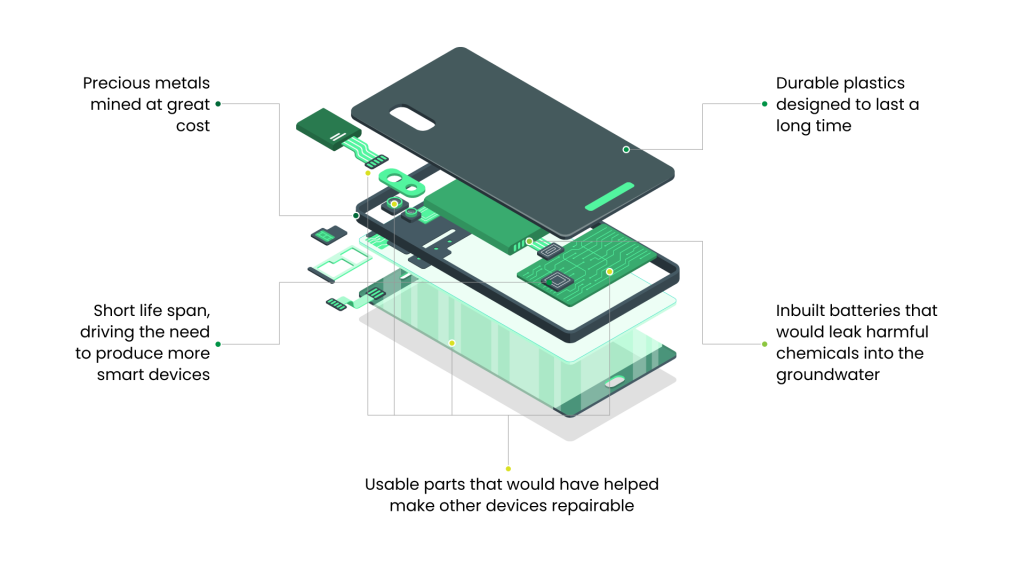
Most electronic devices could spell doom for our environment and health if not handled with care as they contain toxic chemicals and metals that could leak into the air and even underground water. On top of potential dangers, hidden within these devices are precious metals like gold and silver, which still possess high market value if extracted properly.
Despite the realisation, Ching Hwee did not immediately act on the problem until 2014, when his warehouse caught fire. The smoke triggered the sprinklers and destroyed 90 per cent of the electronic devices that were stored there, but his insurance company could not compensate him for the loss because the incident was caused by the negligence of his staff.
It took Ching Hwee two weeks to digest what had happened and reflected on the way he ran his business. Eventually, in 2015, Ching Hwee pivoted his existing venture into a business with a purpose.
He launched myhalo, an integrated platform that allows people to trade-in, repair, and upcycle old electronic devices.
Individuals can choose to adopt – purchase a preloved device or a device that had been remanufactured by the factory with no previous owner; rescue – replace or repair a device or its damaged parts so it can be used again; or upcycle – make a device or its parts available for others to use.
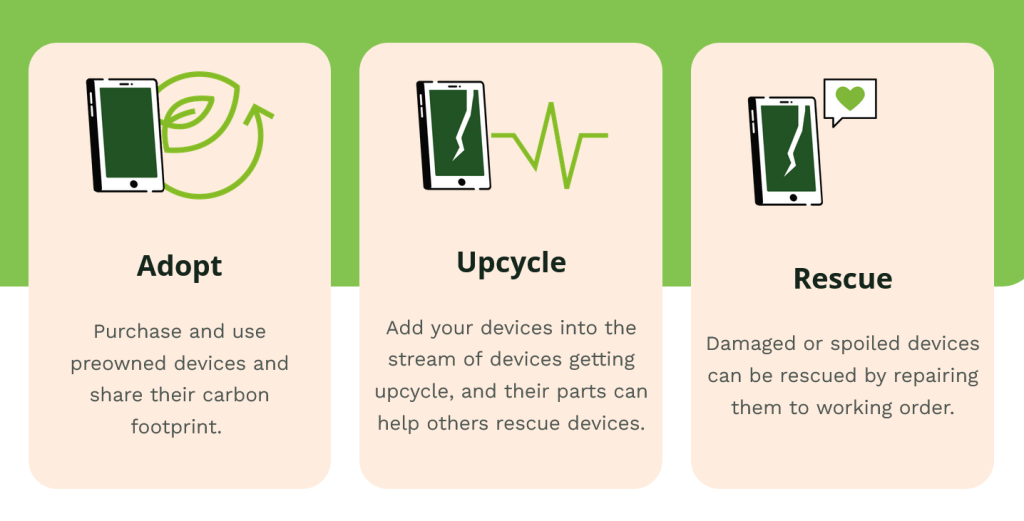
Through his new venture, Ching Hwee wishes to establish a formal process to determine whether some of these devices that people got rid of truly qualify to be e-waste, as well as promote a more sustainable lifestyle.
Waste isn’t wasted until we waste it. So, what myhalo is trying to do is to cut down on the numbers of mobile, tablets, and laptops that end up in the blue e-waste bins in the neighbourhoods. We make them work again for you or others, so they won’t be thrown away unnecessarily and harm the planet.
– Tan Ching Hwee, founder of myhalo
myhalo’s commitment to sustainability goes beyond just selling digital detritus. As much as possible, the platform tries to extend the lifespan of all devices they receive. Even if they hold no commercial value, myhalo will salvage useful parts before donating the remaining ones for recycling.
Don’t worry about your data
Last December, myhalo opened a physical store in Bugis that provides an instant quote for gadgets and other electrical items that individuals no longer want.
This means a valuation will be conducted on the devices that individuals intended to give up, and cash payment will be made after. Additionally, individuals may opt to procure preowned but fully functional devices at a lower cost instead of buying new ones.
At the end of the day, Ching Hwee hopes to have a safe space to educate the public on the impact of e-waste, as well as address any of their concerns relating to upcycling their devices.
But what happens to all the personal data that are stores in the devices after one surrenders them to myhalo?
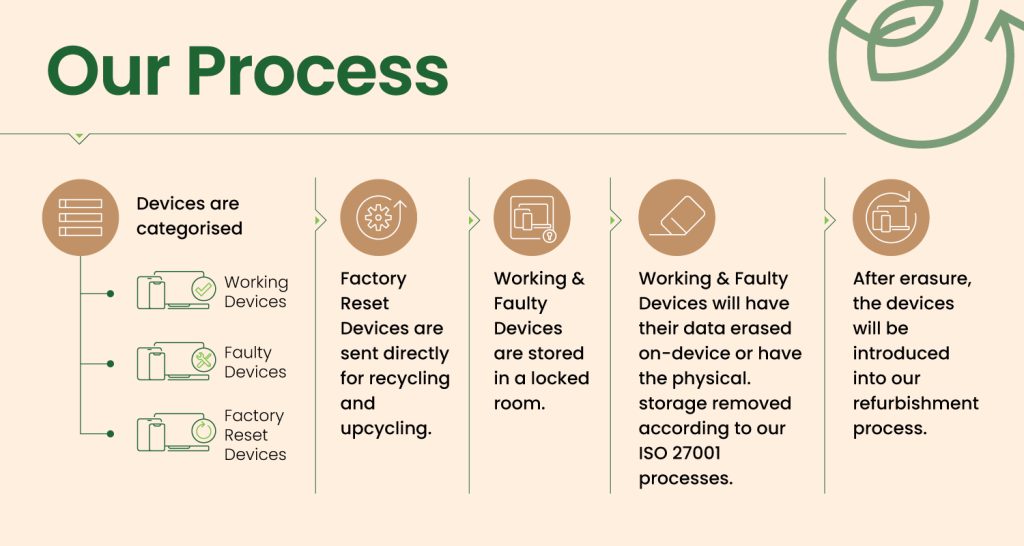
Ching Hwee stressed that myhalo is serious about data protection. They have a full suite of training, including ISO 27001 and Cyber Security Essential certifications to ensure all the data is wiped out before they reach the myhalo warehouse.
His entire team of staff understood and observed PDPA (Personal Data and Protection Act) and they will undergo at least one refresher training every year.
“Once at the store, our team will find out how the customer would like us to handle their data,” Ching Hwee added. “They can request to retrieve or erase their data.”
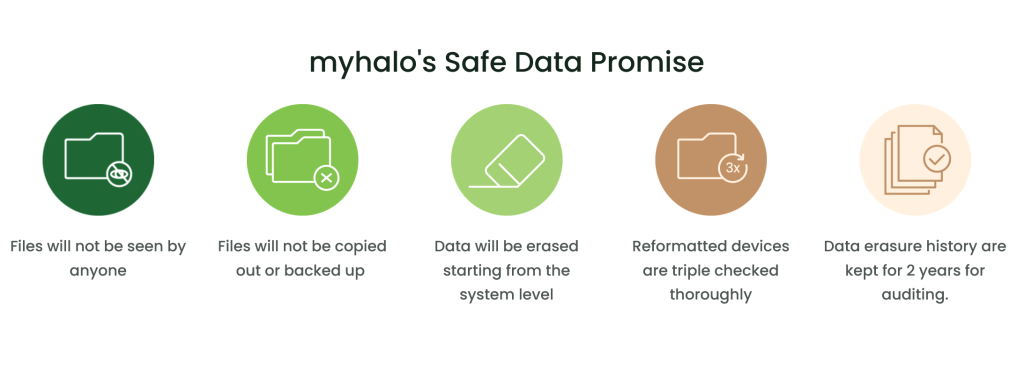
The data erasure process takes place in a restricted area that is locked and accessible only to appointed, trained members of the staff. The records are then stored and encrypted in myhalo server for up to two years, and are non-accessible even by the top management.
Challenges of establishing a zero e-waste lifestyle
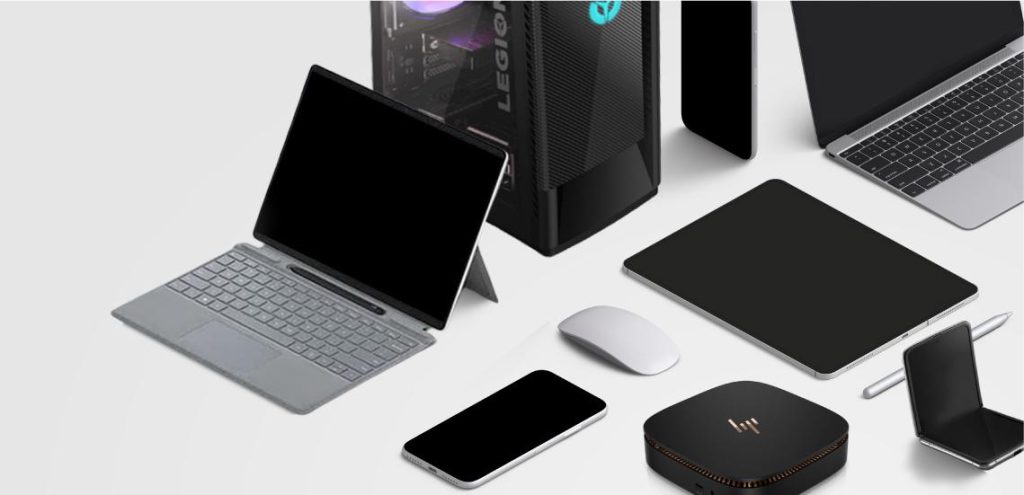
Ching Hwee admitted what myhalo set out to do proves to be challenging.
Based on 2018 figures, Singapore generates about 60,000 tonnes of e-waste every year. This is equivalent to discarding 73 mobile phones per person annually — and this number is expected to increase as technology remains an integral part of the modern lifestyle and new technologies are constantly released to replace the old ones.
Separately, a survey conducted by the National Environment Agency found that 60 per cent of consumers do not know or are unsure of how to recycle their e-waste. Many would either throw their old devices away, or give them to garbage collectors.
In fact, only six per cent of domestic e-waste would eventually end up in the recycling bins.
With that, Ching Hwee is developing myhalo to be a thought leader in advocating a zero e-waste lifestyle among Singaporeans. A concept, which he believes remains novel and hard to grasp for some, especially among the younger generation who wishes for an “easy way out” for the many things in life.
It will take time, but we hope the impact should in turn, help to reduce the overall carbon footprint of individuals and corporates at national level. That’s why we strive to provide end-to-end solutions to overcome consumers’ data concern and extend the lifespan of as many devices as possible. So, nothing will be regarded as waste instantly.
– Tan Ching Hwee, founder of myhalo
Indeed, as we continue to breathe technology, e-waste will unavoidably become the new carbon dioxide that the world is eager to reduce, or even get rid of. And in this journey towards a sustainable future, every effort counts.
Featured Image Credit: myhalo
For all the latest Life Style News Click Here
For the latest news and updates, follow us on Google News.
